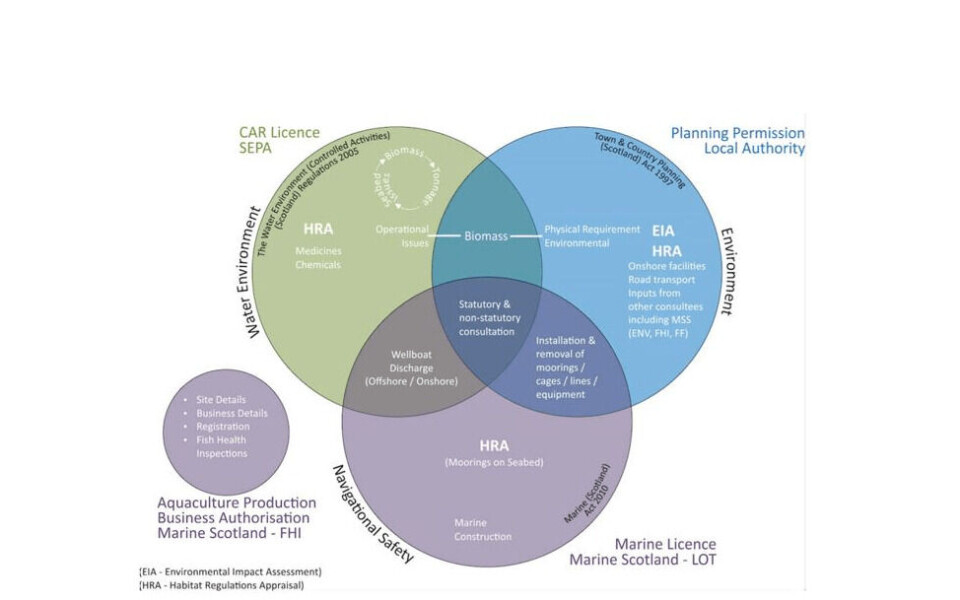
Study probes faster consent for aquaculture plans
A nine-month study into a more streamlined consenting process for aquaculture projects in Scotland will begin this month in preparation for a possible Aquaculture Act.
Gaining the green light for developments such as fish farms can take months or even years, with applicants having to get a Controlled Activities Regulations (CAR) licence from the Scottish Environment Protection Agency (SEPA), a marine licence from Marine Scotland Licensing Operations Team (MS LOT) and planning permission from the local council under the Town and Country Planning (Scotland) Act, among other things.
The new study will look at the feasibility / modelling of single Marine Licence development consent, based on a proposition for an Aquaculture Act that would remove aquaculture from the Town and Country Planning Act.
Remove uncertainty
The Scottish Aquaculture Research Forum (SARF) has commissioned Southampton-based ABP Marine Environmental Research Ltd (APBmer) to carry out the project.
The study follows on from the publication in 2016 of the Independent Review of Scottish Aquaculture Consenting, commissioned by the Crown Estate and Marine Scotland.
That review presented five options to simplify, speed up and remove uncertainty in the consenting process "while at the same time ensuring a key strength of the Scottish system, its robustness, is not compromised".
Inherent duplication
Option 2 suggested removing aquaculture from the Town and Country Planning Act and introducing a specific Aquaculture Act, based on experience elsewhere, namely Norway's distinct Aquaculture Act.
In SARF's Call for Proposals of its project, it stated: "The 2016 review report presented a range of options for improving the [consenting] situation, or at least reducing some of the complexity and inherent duplication of effort.
"One of the options (Option 2) was to completely change the regulatory regime by way of a new Aquaculture Act, and further to this, scope for a single development consent to remove the duplication that exists at present. A (lead) Competent Authority would still be required, and the supposition was – and is at the heart of this Call for Proposals – that some sort of Marine Licensing system, managed by MS LOT, could be developed. It should be noted that other industrial activities in the marine environment are generally managed by way of Marine Licensing: that marine aquaculture is primarily locationally managed by way of the Town and Country Planning Act (T&CP) is anomalous."
Development enabler
SARF added: "It is important to note that the 2016 report did not recommend immediate adoption of the Aquaculture Act Option, for several well-articulated reasons. It did however suggest that this was an interesting medium-term approach, over the next five years."
In a section headed Outline Research Requirement, SARF added that it requires "research on the feasibility/modelling of single Marine Licence development consent for all Scottish aquaculture, including new species such as seaweed, to enable and prepare industry and authorities for future industry development. This study will examine and prepare a detailed model of how a future Marine Licence-based development consent (i.e. excluding T&CP but not CAR) could work to act as both development enabler and provide regulator/stakeholder assurance for an expanding, evolving and dynamic marine aquaculture sector."
The Call for Proposals added: "The overarching goal of this research is to provide peer-reviewed evidence to help advise regulators, managers, industry and stakeholders, in relation to discussions about the development of a future Aquaculture Act."























































